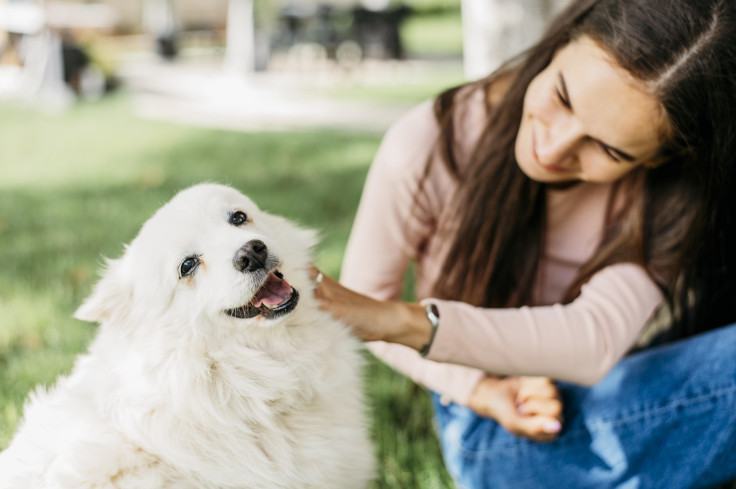Spending Quality Time With A Dog Can Reduce Stress, Improve Concentration: Study

Truly, dogs are man's best friend! A new study has revealed that spending quality time with a dog may help in stress reduction and improve concentration.
The study, published in the open-access journal Plus One, analyzed how various types of interactions with dogs can affect human brainwave patterns.
Earlier studies on human-animal interaction have examined how a person's mood or hormone levels changed before and after spending time with an animal. However, this approach could not identify how a person's health and well-being are affected specifically by each type of interaction, like grooming, feeding, or playing with the animal.
In the latest study, researchers evaluated 30 adult participants while they performed eight different activities with a well-trained dog, such as playing with a hand-held toy, giving treats, and taking pictures with the dog.
To record the electrical activity from the brain during their interaction with the dog, participants wore electroencephalography (EEG) electrodes. They also recorded their subjective emotional state immediately after each activity.
"The relative strength of alpha-band oscillations in the brain increased while participants played with and walked the dog, reflecting a state of relaxed wakefulness. When grooming, gently massaging, or playing with the dog, relative beta-band oscillation strength increased, a boost typically linked to heightened concentration. Participants also reported feeling significantly less fatigued, depressed, and stressed after all dog-related activities," the news release stated.
"Our study demonstrates that animal interaction activities, such as playing, walking, massaging, and grooming dogs, have a positive effect by facilitating increased brain activity in healthy participants. This indicates that certain activities activate relaxation, emotional stability, attention, concentration, and creativity. Notably, playing with the dog has an affirmative effect on both relaxation and concentration. Additionally, through a subjective mood assessment, results revealed that interactions with dogs can decrease human stress and induce positive emotional responses," the researchers wrote.
Not all the participants owned pets. So, a participant's general affinity for animals likely influenced their decision to take part in the study, which could have possibly affected the study outcomes.
However, the authors believe that their findings are significant and show how "the unique relationships between specific activities and their physiological effects could serve as a reference for programming targeted animal-assisted interventions in the future."



























